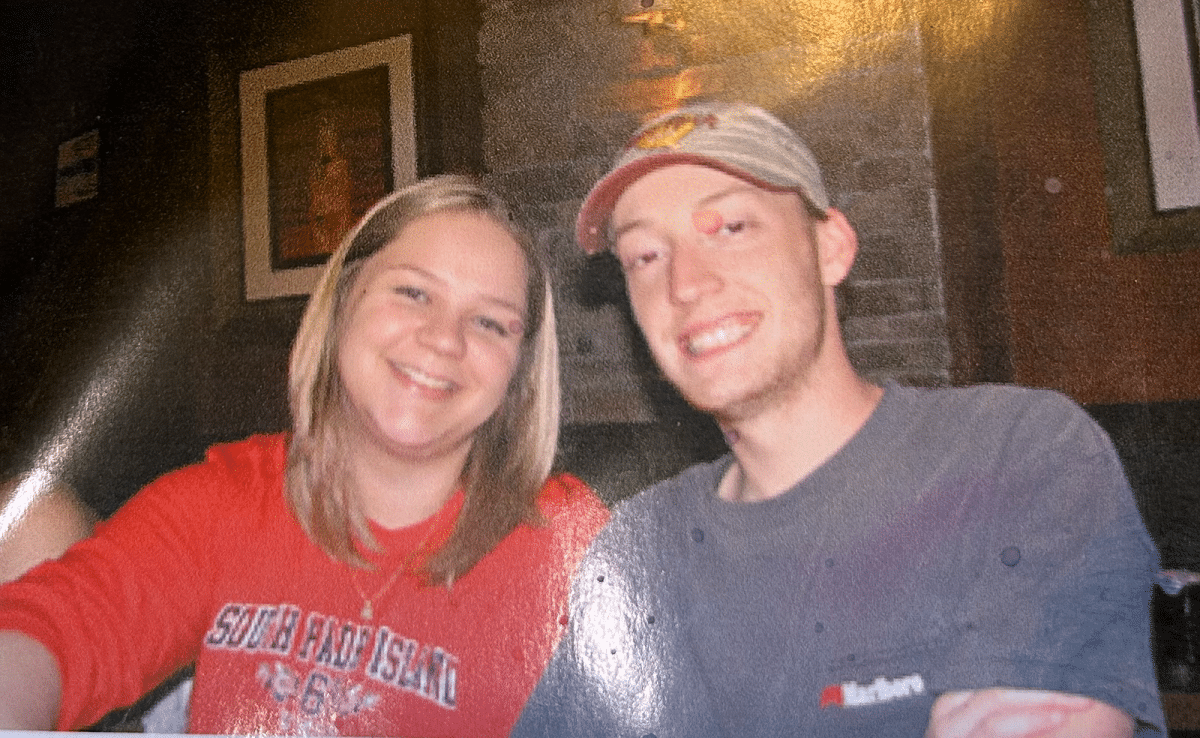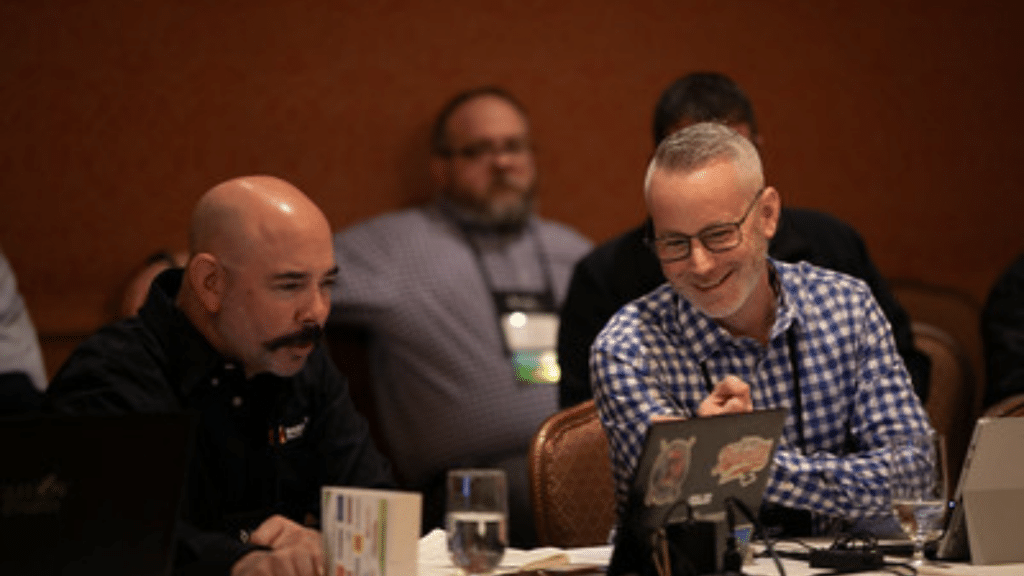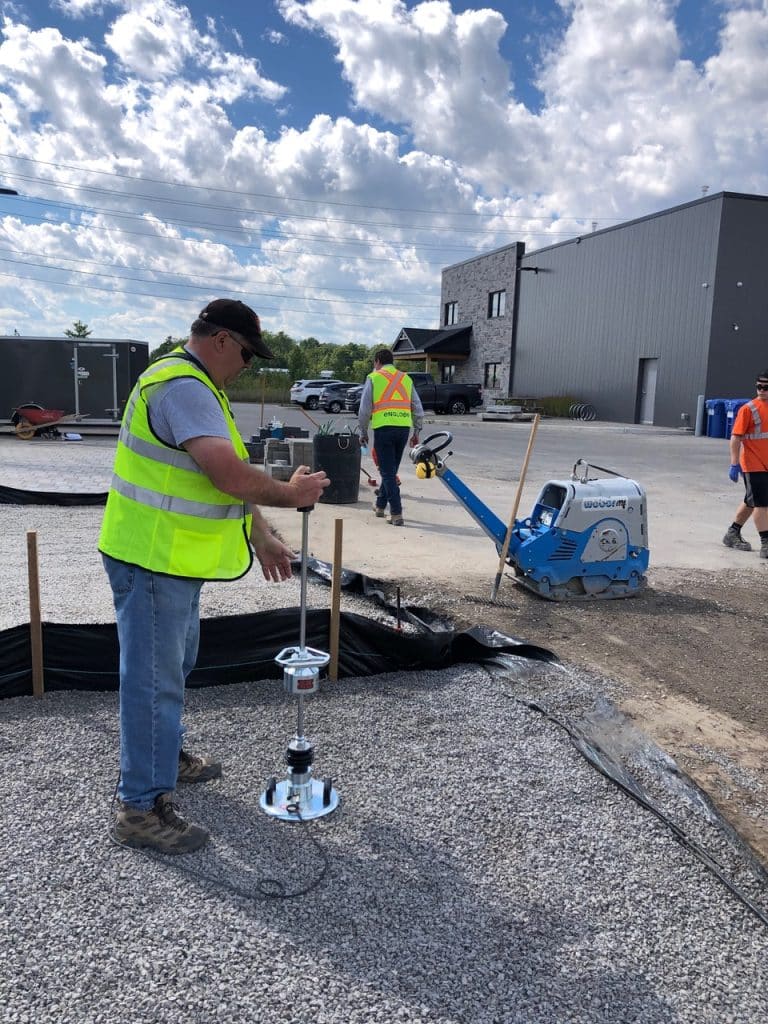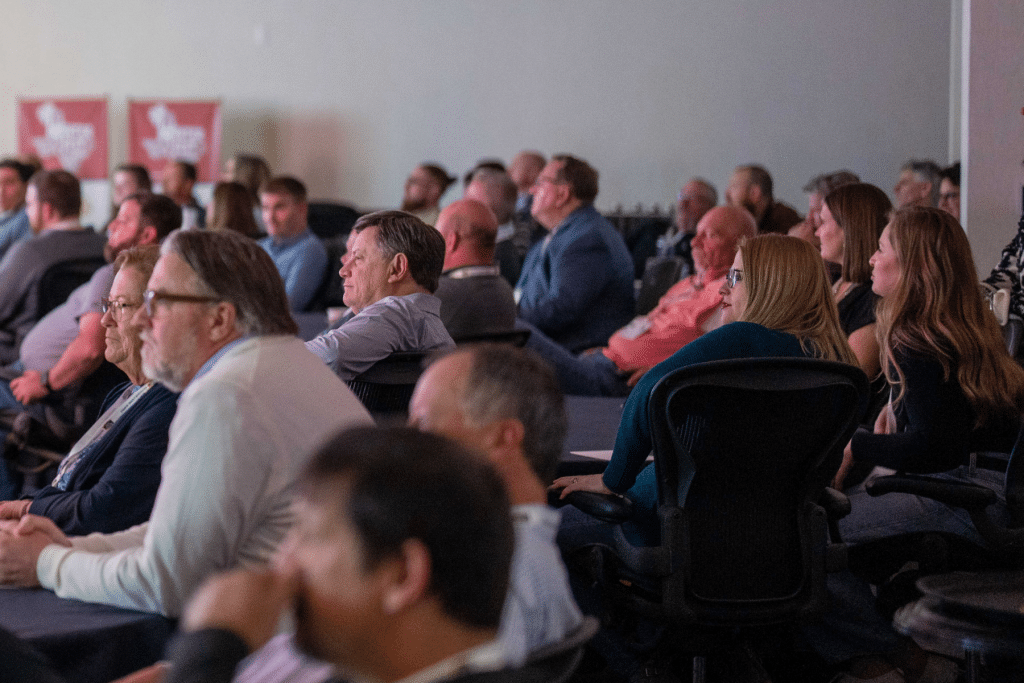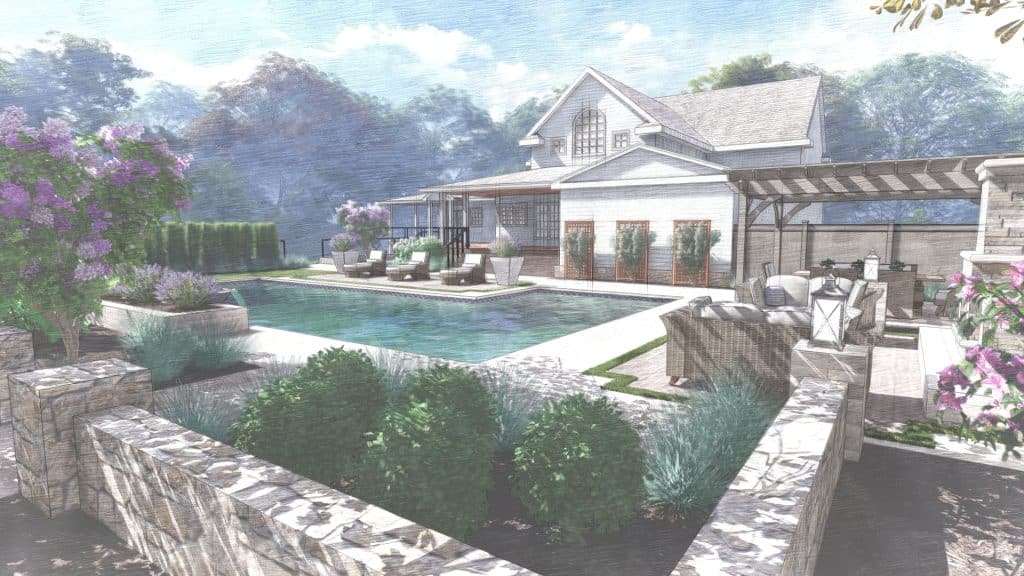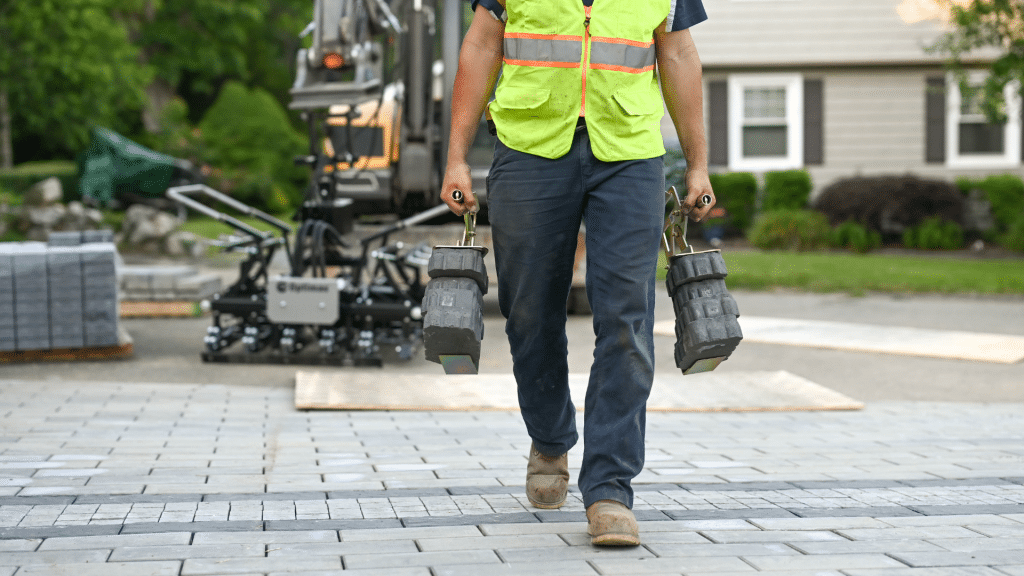A Passion for Pavers
Jason Stewart’s story in hardscaping began years before he launched his own company.
“I had worked for a couple of local hardscape companies previously and kind of recognized my passion for pavers,” he said. He honed his skills working on commercial jobs for about eight years. But Jason knew he wanted more than to simply follow plans; he wanted to design and execute his own ideas.
He decided to start JPave in 2014.
“It has more of a customer service side to it. Now he’s interacting with the customers and creating 3D rendering designs—not just one, but multiple for all the customers,” Jennifer Stewart, Jason’s wife and business partner, explained. “He gets to work more one-on-one with the customer base, and actually start from the beginning of the project, which is going and doing a bid, talking to the customer, all the way to designing it, executing it, and then maintaining it. So just the whole full process.”
For Jason, this change also meant stepping into a role where he could combine his passion for design with the technical skills he had developed over the years.
“I definitely now have the ability to do more of the creative side of the industry, more of the design and more of the engineering as well,” he said.
Taking a Leap of Faith – Together
Jennifer hadn’t planned on entering the hardscaping world. She had a background in managing a variety of businesses ranging from surgical hair transplants to eyeglasses. But during the early days of the COVID-19 pandemic, things took a turn. While she was working long hours in the office, Jason was at home, balancing running JPave and caring for their kids. Hardscaping was booming, and it became clear that the family business needed a second set of hands.
“We just took a leap of faith. We’ve been running JPave together ever since,” Jennifer said.
Since then, Jennifer has taken on multiple roles within the company, from office work to running essential errands for projects.
“I call myself a gopher because I go for this, and I go for that if he calls and says he needs it. I’m a runner. But on the larger scale, we do a lot together,” she continued. “It’s been great being able to have a partner to work with that has the strengths I don’t possess and I have the strengths that he doesn’t possess. Together we make a great team.”
Their teamwork isn’t new—it actually goes back to high school when they managed a barbecue business in their hometown.
“When we were in high school, we ran a barbecue business in our small little town. He cooked while I did the waitressing and things like that. It wasn’t our business, but basically we were there all the time and ran it,” Jennifer remembered with a smile.
The Three Keys to Success
The Stewarts are high school sweethearts and have been together for 24 years. Jennifer said there are three keys to making the business work as a married couple – communication, determination, and patience.
For them, it’s about working together and learning together. “To know that you don’t know something is okay. We’ll learn it together. Don’t be afraid because you’re unsure. You make that leap of faith, and if you’re determined and you really want it, then it’ll happen,” Jennifer said.
Jason echoed the emphasis on determination and communication. He said he wished he would have known how to more effectively communicate both internally and externally before starting JPave.
Emphasis on Artistry and Quality
For Jason, seeing possibilities in each project fuels his drive.
“When he goes to a space to do a bid, he’s already got a million ideas running through his head on what he wants to do, how it’s going to look. He’s already got it pictured in his mind,” Jennifer shared. “It just really ignites that fire in him. He has that amazing capability to look at a blank space and just imagine the most beautiful projects.”
Jason reflected, “I want to say I’ve already always had an artistic side. But the business isn’t all built on art. It’s also built on quality…I get hired in a lot of times because of my quality, and to clean up somebody’s mess.”
Jason shared that they have a contract with their local downtown that they won based on the high quality of his work.
“There’s a lot of utility companies that come in and have to do a lot of changes. They just pull up the pavers and the people that put them back, you know, usually aren’t professional installers. They might even be the utility company themselves,” Jason said. “So, the cuts are never great. They’re always half units just kind of pieced in and there’s large gaps. These private owners downtown recognized my ability to install clean cuts around curved manholes and the like. That’s what they want to see.”
It’s not just local businesses that appreciate JPave’s work. At the 2024 Hardscape North America Awards, JPave took home top honors in the Segmental Concrete Pavement – Residential (less than 3,000 square feet) category.
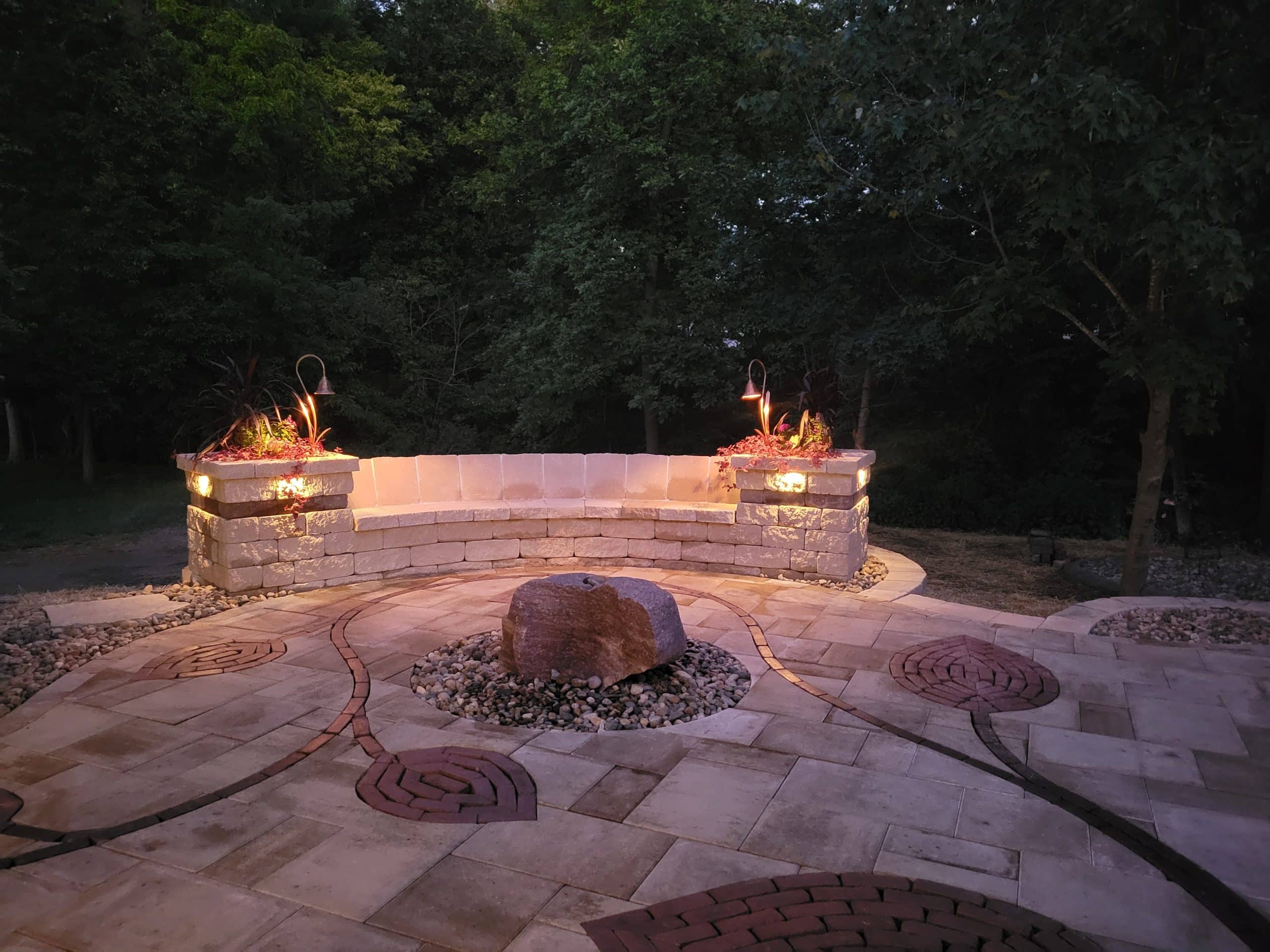
“It was definitely awesome. I was definitely jumping in the air for joy,” Jason said.
“We definitely wanted to increase our visibility as a company and also to showcase Jason’s craftsmanship and his artistic skills,” Jennifer added. “But not only that, this award validates what he’s been doing the last 10 years. I think it’s really important to say, ‘Hey you! You really are the best of the best.’”
Seeing Peers as a Community, Not Competition
As competition winners themselves, it may seem like counterintuitive advice, but Jennifer and Jason both emphasize the importance of community over competition, especially for people new to the hardscaping field.
“A lot of companies and people have this competitive edge. I think they are afraid to talk to other companies, especially in the same industry, because they’re afraid they’ll lose business. But really what happens is you guys start to grow this bond over your passion,” Jennifer said. “I mean, who better than to talk about what you got going on and improve your project than somebody that’s already done it or has ideas about it? When those creative minds get together, anything is possible.”
“I want a talk to more companies like ours. I want to see what they’re doing, what works and what doesn’t,” she added. “I think that helps everyone grow.”

